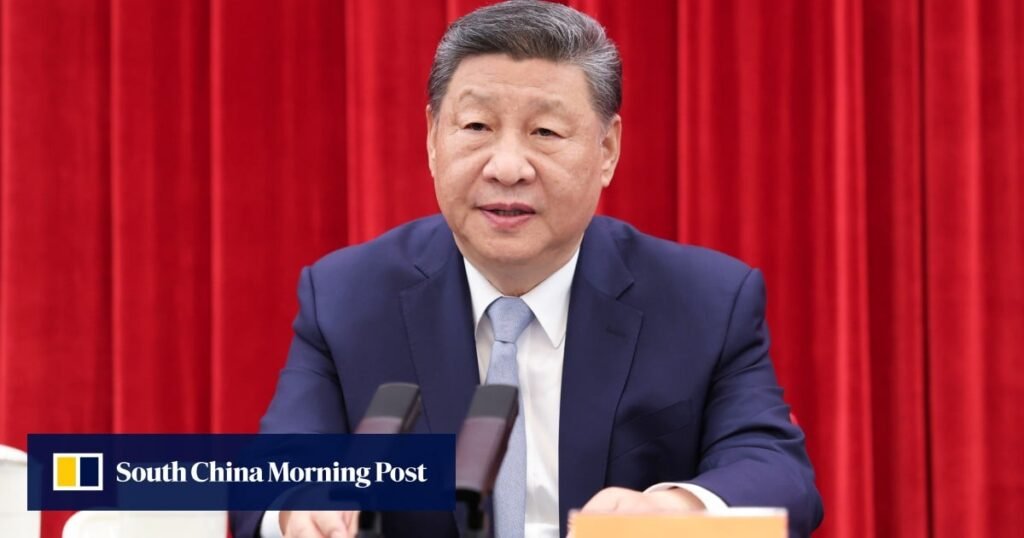President Donald Trump has for years dismissed critics of his mass deportation program as simply not understanding his policy genius. But in a rare apparent concession, the president posted to Truth Social on Thursday seeming to acknowledge how his immigration raids in particular have impacted American farmers.
“Our great farmers and people in the Hotel and Leisure business have been stating that our very aggressive policy on immigration is taking very good, long time workers away from them, with those jobs being almost impossible to replace,” Trump wrote. “That is not good…Changes are coming!”
For once, he’s right.
Trump and his Republican supporters swept into office last year thanks to big promises to help America’s forgotten small farmers. Instead, they’ve pillaged the land for cash and left struggling farmers with the bill. Farmers have warned their Republican lawmakers for months that mass deportations and tariff battles would cripple rural states’ agricultural economies. Battered by trade wars, Immigration and Customs Enforcement raids and a budget that slashes their take-home pay, America’s farmers have been fighting for their livelihoods. It’s a fight that could rattle the foundations of the GOP’s electoral coalition just as voters begin thinking about next year’s midterm elections.
Farmers from California to Nebraska have shuttered operations in the wake of raids that carted off dozens of workers.
Trump’s ever-expanding use of ICE deportation raids made new waves this past week after anti-ICE protests broke out in Los Angeles, and Republicans reflexively focused on disparaging a Democratic city in turmoil. In reality, Trump’s ICE raids have played out in red states like Nebraska, too, albeit without the same heavy TV coverage.
Farmers from California to Nebraska have shuttered operations in the wake of raids that carted off dozens of workers. In Florida, Trump voter Vincent Scardina choked back tears as he described a raid where ICE detained six of his longtime employees, all Nicaraguan men, The Daily Beast reported. Those men represent a third of Scardina’s staff, and he has no idea how his business will replace them while staying afloat.
After the president promised to focus his efforts on capturing “dangerous criminals,” Trump’s broad ICE raids feel like a betrayal to many farmers. The workers and families picked up in farm raids aren’t bloodthirsty gang members Republicans talk so much about. In many cases they are longtime family friends and senior team members. In one January raid that resulted in the arrests of over 1,200 people, nearly half of them had no criminal record at all.
Farmers have also had to internalize a deep sense of unfairness in Trump’s policies. The factory farms and meatpacking companies that donate to Republicans by a two-to-one margin have so far been spared ICE raids despite being among the nation’s biggest exploiters of illegal migrant labor. In an industry where two-thirds of workers are here illegally, federal enforcement seems to be falling almost exclusively on the smallest — and poorest — offenders.
If the relationship between Republicans and their rural base was already strained over immigration, Trump’s brutal federal spending cuts sent things into a deep freeze. In April, the U.S. Department of Agriculture slashed over $1 billion from a federal food-purchasing program that served as a lifeline for farmers in Iowa, North Dakota and across the plains. Anna Pesek, who owns Over the Moon Farm, told the North Dakota Monitor that Trump’s cuts would shrink her business by about 10% and worsen her already tight profit margins. Follow the supply chain and you’ll also find that rural food banks depend on that program to stock food for hungry families.
Again, not everyone is suffering equally. Trump’s One Big Beautiful Bill proposes even more cuts to USDA support programs that form the backbone of a small farmer’s life and business. House Republicans have proposed the deepest cuts to the Supplemental Nutrition Assistance Program in history, amounting to over $300 billion in reductions. For the farmers who supply SNAP with healthy produce, those cuts mean devastating income losses and even farm closures.
The world looks a lot different if you run one of the megafarms owned by a multinational corporation like Cargill. Big agribusiness spent over $178 million on federal lobbying last year, and in return Trump’s budget showers America’s richest farmers with billions of dollars in subsidies. Taxpayer money that once supported rural schools, food banks, adult education centers and health clinics will instead help megafarms drive even more small farmers out of business.
Despite asking the small farmers who voted for him to accept massive cuts in federal support, Trump’s budget still expands USDA’s budget by $56.6 billion. Almost all of that increase — $52.3 billion — comes in the form of expanded subsidies that are mostly claimed by industrial farms growing key staple crops. Indiana’s 25,000 small farmers may be losing their local health clinics and workers, but at least the executives at Archer Daniels Midland can afford another round of bonuses.
All of that unhappiness is causing serious problems for Republicans in areas that used to be political strongholds. Trump’s approval recently fell to a low of 38%, driven in large part by erosion in the GOP’s core support. Rural voters have consistently supported Trump at the ballot box, and he even improved his numbers with them last year, to a record 63%. Those days are over: An NPR/PBS/Marist poll conducted in April found that only 4 in 10 rural voters approve of Trump today.
Republican lawmakers know how difficult it will be to hold critical swing districts if they stay this unpopular with core constituencies like heartland farmers. That puts the House Republicans who represent rural areas in a real bind, because they have no good answers for Trump’s betrayal of family farmers. Back in February, seven of Wisconsin’s GOP lawmakers simply didn’t show up for a community forum hosted by the Wisconsin Farmers Union. Running from your voters isn’t a winning strategy.
Faced with the mounting political cost of his policy failures on rural Americans, Trump now promises that “Changes are coming!” The millions of farmers who helped send him to the White House last year are done waiting.







